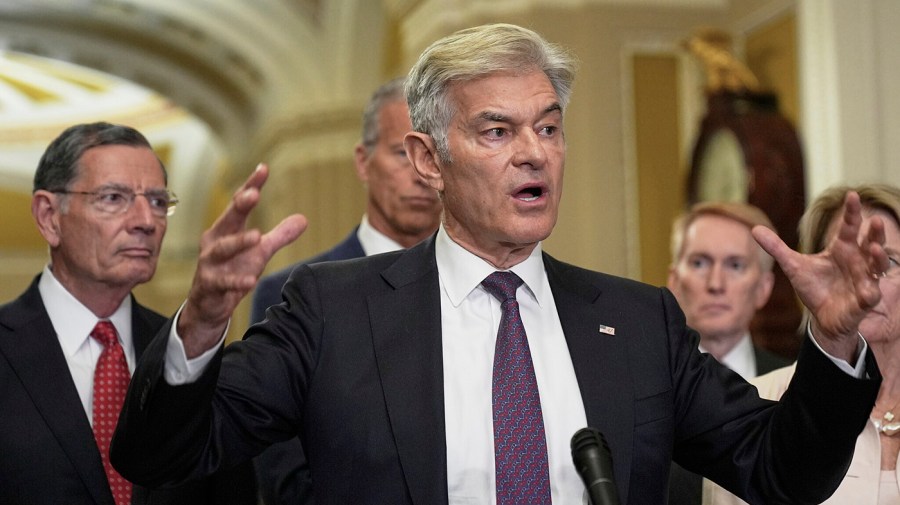Centers for Medicare and Medicaid Services (CMS) Administrator Mehmet Oz downplayed on Wednesday the likely substantial increase in the amount Americans will pay for health insurance on the Affordable Care Act’s (ACA) federal marketplace.
When asked at a press conference about the lack of a deal in Congress to extend expiring enhanced tax credits, Oz said he thinks they should expire because they were only intended for a short term to help Americans through the COVID-19 pandemic.
“I think we all agree that COVID has passed, so therefore COVID-era subsidies should also pass,” Oz said.
Pointing to figures released by CMS, Oz said the average American who purchases an ACA plan will pay $50 a month in 2026, even if the enhanced tax credits expire, an increase of only $13 from this year.
“So there can be a lot of hair pulling and scratching, mudslinging. But the fundamental reality for most Americans is that although it is an increase in spend, that’s not the big issue,” Oz said. “The big issue is the fundamental flaws within the ACA.”
Currently, 24 million people have marketplace plans, and about 22 million receive premium tax credits. Many people will still receive some form of financial aid if the enhanced subsidies expire at the end of the year to shield them from the full premium.
But experts at the health policy research organization KFF said the $50 figure is misleading because CMS is touting the lowest-cost bronze plan, not the “benchmark” silver plan that most people buy, which is used to determine tax credit amounts.
According to KFF, the amount enrollees pay will rise about 114 percent to keep the same plan if the enhanced tax credits expire, while the actual rates charged by insurers will increase about 26 percent.
People with incomes below four times the poverty level will receive less financial assistance, and those with incomes more than four times the poverty level will no longer be eligible for any financial assistance.
Premiums are also not the only sign of how much people pay for health insurance. Marketplace plans, like most other private health coverage, require enrollees to pay a deductible toward the cost of services.
According to KFF, lower-income enrollees will still be eligible for a bronze plan with a very low premium payment after accounting for the smaller tax credit they will continue to receive.
But the reduced financial assistance could mean they would need to switch from a silver plan with a deductible of less than $100 to a bronze plan with a deductible of over $7,000.

